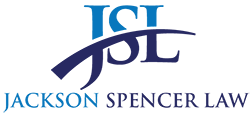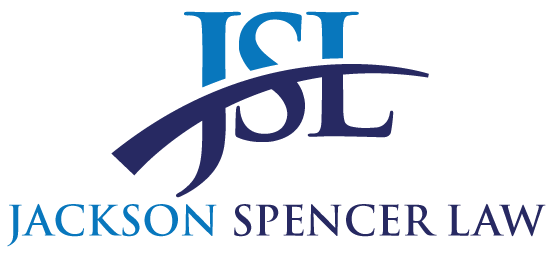Employers and employees alike have had to comply with evolving health protocols as the world has dealt with the coronavirus pandemic. You have likely learned a number of new medical terms, been informed about symptoms, screening methods, and followed the rush to get most of the world vaccinated.
One new term to add to our collective vocabulary is “antibody test.”
In the interest of public health and safety, many workplaces have had to implement COVID-19 screening and protocols to reduce the risk of spreading the highly contagious (and deadly) virus.
But can an employer require you to take a COVID-19 antibody test? Here’s what you need to know:
- Antibody tests do not reveal if an individual is contagious with COVID-19.
- The EEOC says employers cannot require an antibody test or ask workers about antibody test results.
- COVID-19 antibody tests are prohibited by the Americans with Disabilities Act.
- Antibody tests should not be used to determine whether an employee is safe to return to the workplace.
- Employers cannot require a medical exam unless it is job-related and necessary for the operation of the business.
At Jackson Spencer Law, we aim to provide employees with helpful information about their rights. We’ve written about everything from employer-mandated vaccinations to OSHA guidelines, with a focus on your rights as a worker during a pandemic.
In this article, we discuss COVID-19 antibody tests, EEOC guidance on employer-mandated antibody testing, and a brief look into the Americans with Disabilities Act. We’ll start with a short primer on antibody testing.
What Is a COVID-19 Antibody Test?
Antibodies are created by the immune system to fight infections. As far as we know, COVID-19 antibodies develop over days or weeks once the body has been exposed to the virus. It is unknown how long the antibodies stay in one’s blood.
That being said, antibody tests may detect if a person was exposed to coronavirus, has been infected with the virus, and/or has recovered from the virus. Unfortunately, these tests do not tell us whether an individual has an active infection or if they are contagious. In a word, antibody tests may be useful for healthcare professionals studying the virus, but they do not offer much help in the workplace.
What Does the EEOC Say About Mandatory COVID-19 Antibody Testing?
You have probably followed much of the guidance issued by the Center for Disease Control (CDC) over the past year. While the CDC’s guidance helps individuals as well as organizations determine the proper health precautions to minimize the risk of virus transmission, it is the Equal Employment Opportunity Commission (EEOC) that is responsible for enforcing workplace anti-discrimination laws.
The EEOC recommends that employers follow recommendations by the CDC as they relate to screening individuals for COVID-19 and reducing the spread. However, they made it clear that antibody tests “should not be used to make decisions about returning persons to the workplace.” Antibody tests do not inform us whether an individual is contagious, so they are of little use for employers. More specifically, the EEOC advised that requiring employees to take an antibody test or divulging antibody test results is not allowed under the Americans with Disabilities Act.
To better understand the EEOC’s guidance, let’s take a closer look at relevant provisions of the Americans with Disabilities Act (ADA).
What Does the ADA Say About COVID-19 Antibody Testing?
The ADA (among other workplace anti-discrimination laws) is enforced by the EEOC, so their guidance matters. The rules contained within the ADA apply to all government employers, labor unions, and private employers with 15 or more employees. As long as your employer falls within one of these categories, they are obligated to comply with the EEOC’s guidance – including the recent guidance regarding antibody testing.
The ADA restricts the types of medical information an employer may require from a worker or job applicant. In general, employers cannot require medical exams. But coronavirus has led to a number of firsts. The key factor in whether an employer can require a medical exam remains the same, however: any medical exams or inquiries must be job-related and a business necessity. Because of this rule, employers are permitted to ask employees if they are experiencing symptoms of COVID-19 and perform screening measures like temperature checks, to comply with public health authorities and ensure a safe working environment.
Yet, antibody tests do not reveal whether an individual has an active case of COVID-19 (the primary goal of other forms of screening). They are not a reliable measure of whether an individual poses a public health risk to others and the EEOC says they should not be used to make decisions about whether an individual is safe to return to work. Because antibody tests do not reveal whether an individual is contagious, they do not meet the ADA’s “job-related and consistent with business necessity” standard.
Put simply, employers cannot require workers to take an antibody test or reveal the results of an antibody test they have taken on their own accord. Antibody tests do not reveal information pertinent to an employee’s ability to perform their job or whether they could place others at risk.
What if My Employer Requests a Test or Asks for My Test Results?
Thanks to the coronavirus pandemic, the past year has been one of great upheaval and confusion. We’ve had to change the way we live, interact, and most of all, the way we work. But workers still have rights in the wake of a pandemic.
If your employer requests that you take a COVID-19 antibody test or asks for antibody test results, they are violating the law. You are not required to comply with their requests. Depending on your situation, you may even have an ADA claim. You can file a complaint with the Dallas EEOC office or contact an experienced employee rights attorney for advice.
At Jackson Spencer Law, we tackle employment disputes with honest advice and aggressive representation. To find out if you have a case, contact our office for a free consultation. We’ll advise you of your rights and help develop a strategy that works for you. Until then, stay safe!



